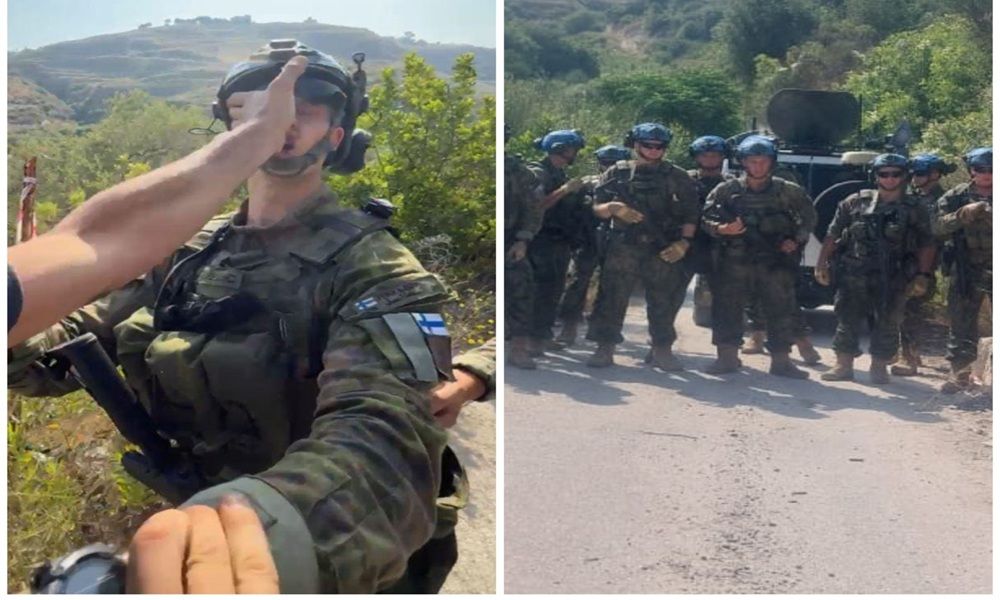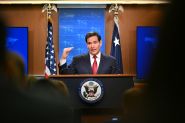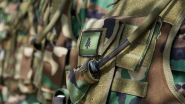
The Lebanese government expressed strong concern on Tuesday following two separate incidents in southern Lebanon, where civilians believed to be affiliated with Hezbollah targeted patrols from the United Nations Interim Force in Lebanon (UNIFIL). The attacks have reignited debate over the freedom of movement granted to UN forces under UN Security Council Resolution 2695 (2023), which Hezbollah continues to challenge.
The first incident occurred in the town of Bedyas (Tyre district), where a man confronted a UNIFIL patrol, ordering it to leave and summon the Lebanese army. When the peacekeepers did not comply, a verbal altercation ensued.
A more serious confrontation took place shortly afterward in the Fuwar area, between Deir Qanun el-Nahr and Hallussiyeh. Residents blocked the road to prevent another UNIFIL patrol from passing, claiming it was not accompanied by the Lebanese army. The standoff escalated into a physical altercation, during which a peacekeeper was reportedly slapped. The Lebanese army intervened soon after to defuse the situation, and the UN patrol withdrew.
UNIFIL confirmed that its peacekeepers were attacked while patrolling in Hallusiyat al-Tahta. According to a statement from the force, civilians attempted to obstruct the convoy’s passage and threw stones at the vehicles, lightly injuring one soldier. The peacekeepers responded using non-violent measures until the arrival of the Lebanese army, which helped restore calm.
UNIFIL reiterated that freedom of movement is essential to fulfilling its mandate, as outlined in UN Security Council Resolution 1701. The force warned that “any restrictions on this freedom – whether during independent operations or joint missions with the Lebanese Armed Forces – constitute a violation of the resolution.”
The mission also denounced what it described as the “repeated targeting” of its personnel and urged the Lebanese government to take all necessary steps to prevent further incidents.
The Council of Ministers and the Ministry of Foreign Affairs strongly condemned the attacks, calling on the relevant authorities to identify and prosecute those responsible. The Lebanese army has launched an investigation and is working to apprehend the perpetrators.
President Joseph Aoun condemned these attacks, which he said serve Israel's interests and undermine the stability of the South. "The presence of UNIFIL is now a regional necessity, not just a Lebanese one," he stated.
Prime Minister Nawaf Salam condemned “in the strongest terms” the repeated assaults on UNIFIL, warning that such acts “threaten Lebanon’s security and stability and undermine national interests.” He called on the authorities to “act swiftly to arrest the attackers and bring them to justice.”
Salam also emphasized Lebanon’s commitment to renewing UNIFIL’s mandate, noting that the force plays a critical role in upholding Resolution 1701 and maintaining peace and stability along the southern border.
The Ministry of Foreign Affairs echoed this sentiment, stressing the importance of holding the attackers accountable for their actions, which violate both Lebanese and international law. In a statement, the ministry reaffirmed Lebanon’s support for UNIFIL’s mission and mandate, and underscored the need to ensure the safety of peacekeepers and their vehicles.
In a rare local response, the municipality of Bedyas issued a statement expressing “deep regret” over the incident. It condemned the attack as an “unacceptable individual act” that “does not reflect the views of the town’s residents or those of the South more broadly.” The municipality reaffirmed its “respect and appreciation for UNIFIL’s role in maintaining stability” and welcomed the “constructive cooperation” between the international force and the local community.



Comments